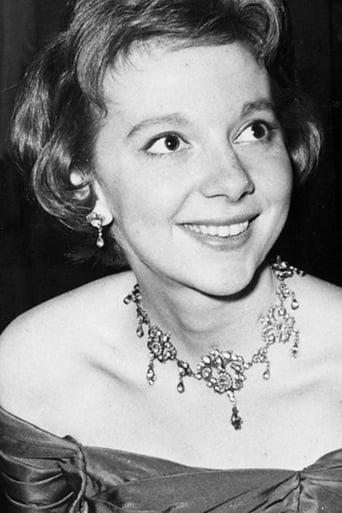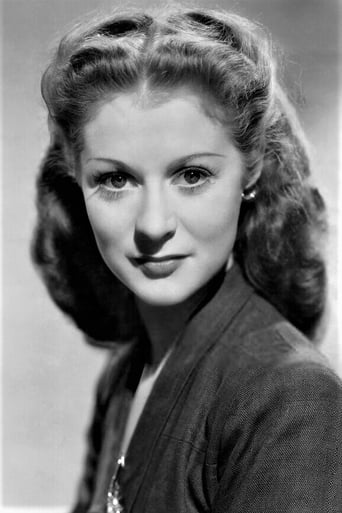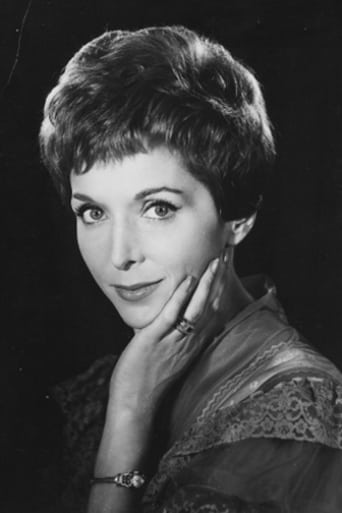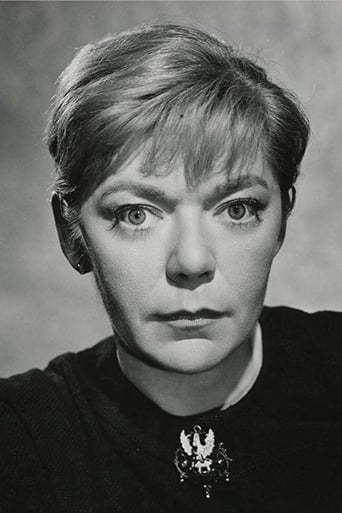Evengyny
Thanks for the memories!
Stometer
Save your money for something good and enjoyable
Matialth
Good concept, poorly executed.
Tobias Burrows
It's easily one of the freshest, sharpest and most enjoyable films of this year.
rdoyle29
This film that, so loathed by everyone in 1960 that it effectively ended the film career of a prestigious director, feels a good decade ahead of it's time. It seems a bit puzzling at first that "Psycho" could be released in the same year and be a success for Hitchcock, and that this film would ruin Powell, but it makes sense when you really look closely at the films. Hitchcock's film has shocking content, but the shocks have a somewhat safe and innocuous character to them. Hitchcock wouldn't really delve into the sort of perverse and unseemly violence you find in this film until "Frenzy", over a decade later. Powell's film delves into the mix of sex, voyeurism and violence that De Palma would delve into in the 70's and 80's, and while this is not simply "a De Palma film made 20 years earlier" (it's less slick, but also a bit more artful), the comparison shows why it took so long for anyone to appreciate this film.
FilmCriticLalitRao
In any person's life, the period from childhood to youth is one of the most difficult phases. It is a period in which innocence is gradually replaced with maturity. However, if a person is the victim of some bad happening in this phase, it would continue to haunt for the rest of the life. This psychological observation is the basis of British director Michael Powell's masterpiece 'Peeping Tom'. It was written by Leo Marks who is credited for having created one of the most original screenplays ever written. Peeping Tom is an important film for students of cinema as well as psychology as it examines in detail the relationship fear has in cinema. This relationship is so mutually common that both of them are used abundantly by the film's leading man Mark Lewis. For many viewers, home theater is a modern invention which brings viewers closer to films but for a peeping tom like Mark Lewis it had a different personal connotation as he had his own version of home theater at home which enabled him to seek pleasure by watching fear. It is cinema especially its technical side which helps Mark Lewis to create fear in the minds of his victims. Peeping Tom was made in 1960s, a time of revolutionary change all over the world. However, its growing popularity is essentially a strong proof of its 'Cult' film status.
Robert J. Maxwell
This is one perplexing film, almost as odd as Anna Massey's, the heroine's, face. Her features -- eyes, nose, lips, chin, neck -- seem to have been plucked at random from some genetic hat and flung together by the creator and, happily, came out right, almost by accident. Half the time I couldn't tell whether a scene was aimless or held some deeper, clinical significance that was lost on a dullard like me.The bare bones of the story are plain enough. Handsome, introverted, young Karlheinz Böhm works as some kind of focus puller in the British movie industry. He occupies the top floor of a rooming house and the largest room is dark and filled with mysterious cinematographic junk, like one of those chambers in a horror movie.Due do his child abuse, he loves to see women being frightened and then he kills them with a sharp spike on the end of one of the feet of his tripod, filming their faces all the time. He doesn't do it very often but when he does, she switches his persona from his usual reticent, shambling self, to a cockeyed maniac.Is there hope for him? I mean, we really DO want him to get caught or at least stop committing these little sins because he's pathetic. He sounds like Peter Lorre. For a few moment, in the middle of the film, yes, there seems to be a way out of his obsession. Anna Massey, a winsome young lady of twenty one, talks him into a date and more or less forces him to leave his movie camera and tripod behind. He's surprised to find he's enjoyed himself and promises himself never to kill her -- unless he sees her frightened.As the lunatic, Böhm is bland. Anna Massey is far more interesting. When she speaks, it seems that only her lips are moving while the rest of her face remains at rest. (That really IS worth making a movie about.) Moira Shearer has a small role as one of the first victims. She's given some clunky choreography except that she gets to bust one or two ballet moves that I think are called kick fans. She's quite a dancer. She's the only woman I've ever seen who can be en pointe sitting down.Nobody else is of much importance except Massey's blind mother, Maxine Audley, who makes up for the challenge to her sight by being practically clairvoyant. The police are no more than drones.It's not hard to understand why Böhm is more comfortable with cameras than with people. Conversing with other people is an extremely complicated business. It's only because we do it so often that it seems routine. But it's not. We have to manage our body language, our facial expressions, our utterances, our inflections, and the distance we keep between ourselves and the other. We don't notice these commonplace decisions except in people who make the wrong ones, as schizophrenics do.But those careful and precise judgments don't need to be made when a camera or a computer or radio can act as a transducer, shielding us from the judgment of others. We're safe behind that baffle. You doubt? Ever have stage fright? Well extreme introverts like Böhm have people fright.But, in the end, I don't know what to make of this movie. It's a mistake to read too much into a thing. It's like looking at a random assortment of stars in the sky and connecting them in such a way that you wind up with the outline of a bull or, for the Chinese, a rat. The prominent director may have led some viewers to make that error, but I'll have it some points for its meanderings being the result of deliberation; for the rest, felix culpa.
jimpayne1967
I first came across this film 30 years ago after reading the entry for it in Danny Peary's book on Cult Films and, as I was a great fan of a couple of the Powell and Pressburger I was curious to see it- Peary was very enthusiastic and the cult has grown since then and it is now very highly rated.I think the ending is terrific- disturbing, creepy and poignant rather than scary and definitely worth waiting for.But the rest of the film is a bit sluggish and some of the acting is a bit ropey with Carl Boehm being neither sinister nor sympathetic enough though Maxine Audley and Anna Massey are superb and Shirley Ann Field looks nice as always. Real life glamour model Pamela Green looks splendid too and if you look hard enough she reveals more than had been revealed in a mainstream British film before. There are interesting subtexts about sexuality, voyeursim, cinema itself and (possibly) post war British attitudes to Germans in this film and 55 years on the surface subject is still quite shocking but this is not, I think, a great film. It has an eerie score, some good bits but it is nothing more than 'worth catching' as opposed to the masterpiece it is now considered to be.












